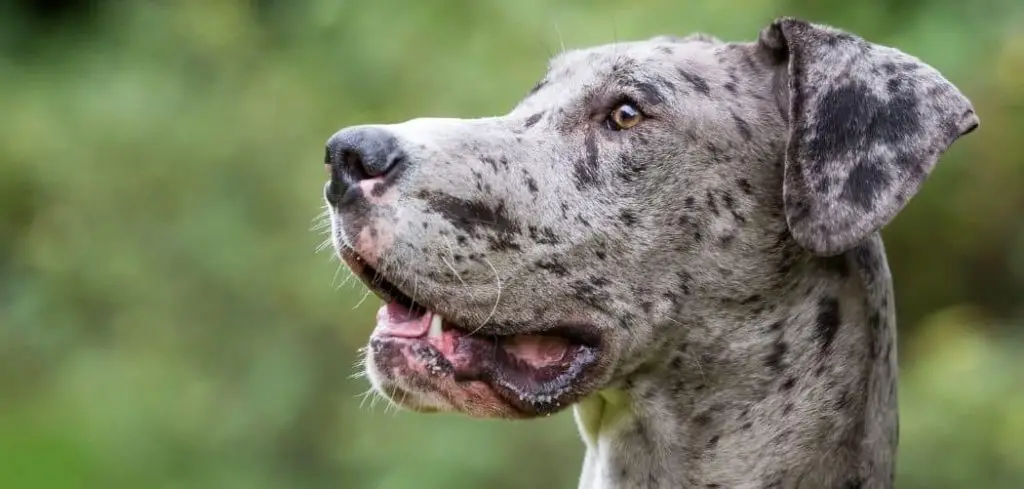When an old dog is not eating and shivering, it is often a sign of illness, pain, or systemic distress.
Loss of appetite combined with tremors or shivering can indicate infection, fever, organ dysfunction, or extreme discomfort. In senior dogs, these symptoms require careful monitoring and prompt veterinary attention.
We outline the common reasons why an old dog may not be eating and shivering, what you can do at home, and when to seek veterinary help.
Old Dog Not Eating and Shivering — Why It Happens
Loss of appetite and shivering in older dogs often signals underlying illness or physical distress. Common causes include infections, pain, fever, hypothermia, neurological disorders, or organ dysfunction.
Shivering may be accompanied by weakness, lethargy, or vomiting, indicating that the dog’s body is struggling to maintain normal function. Early detection and treatment are essential to prevent complications.

Old Dog Not Eating and Shivering: Common Causes
Fever and Infection
Bacterial or viral infections can cause fever, chills, shivering, and appetite loss.
Older dogs may also show lethargy, vomiting, or diarrhea. Prompt veterinary evaluation allows for diagnosis and treatment with antibiotics, fluids, or supportive care.
Read more: Old dog not eating and breathing heavy (Explained)
Pain or Discomfort
Pain from arthritis, injury, or internal conditions can trigger shivering and reduce appetite.
Dogs may be restless, vocalize when touched, or avoid movement. Addressing pain through veterinary guidance improves comfort and encourages eating.
Hypothermia or Cold Sensitivity
Older dogs may have reduced body fat or circulation, making them more sensitive to cold.
Shivering may occur even in mildly chilly environments, and appetite may decrease due to discomfort. Providing warmth, blankets, or heated bedding can help, but persistent shivering requires veterinary assessment.
Organ Dysfunction
Kidney, liver, or heart disease can indirectly cause shivering and appetite loss.
Toxin buildup, reduced circulation, or metabolic imbalances may trigger tremors. Dogs may also show vomiting, lethargy, or weakness. Early veterinary evaluation is essential to prevent further complications.
Neurological Disorders
Neurological problems can cause tremors or shivering and interfere with normal appetite.
Signs may include wobbling, weakness, or difficulty coordinating movements. Veterinary assessment helps identify underlying neurological or muscular conditions.
Cancer
Certain cancers can cause systemic weakness, tremors, and loss of appetite.
Dogs may show lethargy, weight loss, or vomiting. Veterinary evaluation is crucial for early detection, treatment, and supportive care to maintain quality of life.
What to Do If Your Old Dog Is Not Eating and Shivering
Keep your dog warm with blankets, heated bedding, or a cozy environment.
Offer small, soft meals or low-sodium broth to encourage eating. Monitor hydration and provide water in easy-to-access bowls.
Observe for additional signs such as vomiting, lethargy, or changes in breathing. Keep detailed notes on appetite, shivering, and overall behavior for your veterinarian.
When to Call or Visit Your Vet
Seek immediate veterinary care if your dog:
Shivers persistently or uncontrollably
Refuses all food and water
Shows vomiting, diarrhea, or weakness
Exhibits pain, pale gums, or lethargy
Prompt evaluation can identify infections, organ dysfunction, pain sources, or neurological conditions, ensuring timely treatment and comfort.
Read more: Old Dog Not Eating (Causes and what to do)
Key Takeaway
When an old dog is not eating and shivering, it often indicates underlying illness, pain, or systemic distress.
Supportive care includes maintaining warmth, offering soft meals, and monitoring hydration and behavior.
Persistent shivering and appetite loss require veterinary evaluation to prevent complications, ensuring your senior dog remains comfortable, safe, and healthy.
